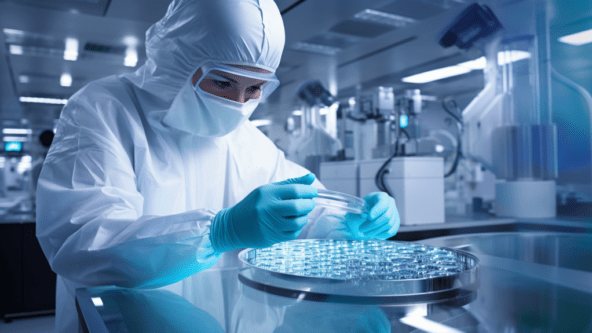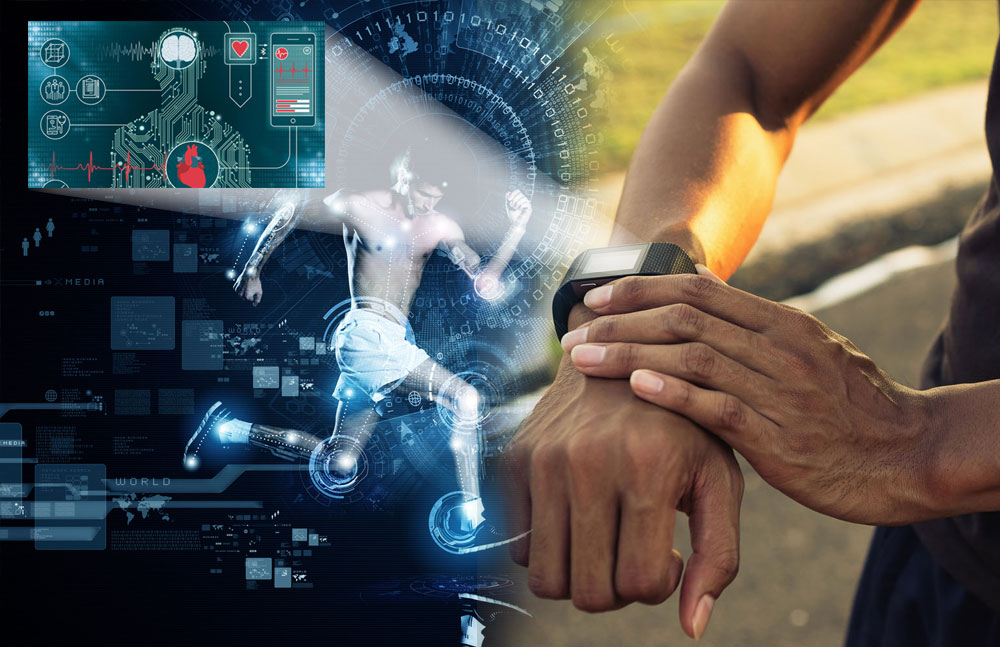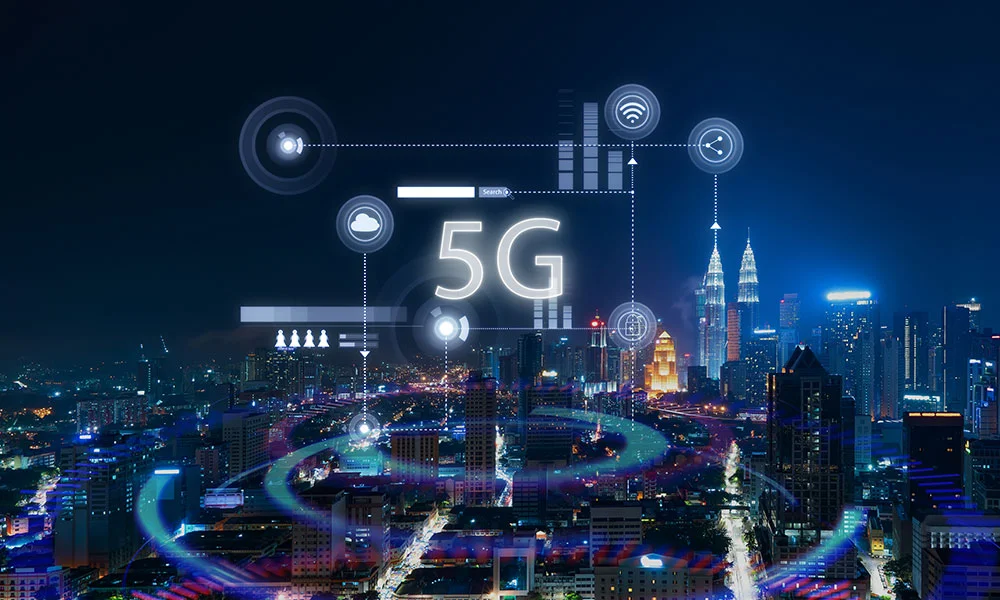Introduction to Health Technology and Biotechnology
The intersection of health technology and biotechnology is a dynamic landscape, brimming with innovation. These fields are revolutionizing healthcare in ways we could only dream of just a few decades ago. From groundbreaking medical devices to advanced genetic therapies, the advancements in these areas are reshaping how we approach health and illness.
Imagine a world where diseases can be detected before symptoms even appear or where personalized medicine tailors treatments specifically to your genetic makeup.
This future isn’t far off; it’s happening right now! As we explore the incredible developments in health technology and biotechnology, it becomes clear that these innovations hold immense potential for improving lives around the globe. Join us on this journey into the heart of modern medicine as we uncover how science is pushing boundaries like never before.

Advancements in Health Technology
Health technology has rapidly evolved, reshaping the landscape of medical care. Innovations like telemedicine have made healthcare accessible from the comfort of home. Patients can consult doctors via virtual appointments, significantly reducing travel and wait times.
Wearable devices are changing how individuals monitor their health. From fitness trackers to smartwatches, these gadgets provide real-time data on heart rate, physical activity, and sleep patterns. They empower users to take charge of their well-being.
Artificial intelligence is enhancing diagnostic accuracy as well. Algorithms analyze vast amounts of patient data faster than ever before, helping physicians identify conditions earlier and more accurately.
Robotic surgery is another breakthrough in precision medicine. Surgeons can perform complex procedures with minimal invasiveness, leading to quicker recoveries for patients and less time in the hospital.
These advancements illustrate just a fraction of what health technology brings to modern medicine. Each innovation contributes uniquely to improving patient outcomes and overall healthcare delivery.

Impact of Biotechnology on Healthcare
Biotechnology is revolutionizing healthcare in remarkable ways. It enhances disease diagnosis and treatment options significantly.
Through genetic engineering, tailored therapies are now available for patients. These personalized medicines target specific genes or proteins involved in a condition. This approach increases effectiveness while minimizing side effects.
Moreover, biotechnology contributes to vaccine development. Innovations have accelerated the creation of vaccines during health crises, protecting populations more swiftly than ever before.
Biomanufacturing also plays a pivotal role in producing essential drugs and biologics at scale. This efficiency helps meet global healthcare demands without compromising quality.
The integration of biotechnology with digital health tools further expands its impact. Real-time data collection allows for better patient monitoring and management strategies.
These advances not only improve patient outcomes but also enhance overall public health systems, making them more resilient against future challenges associated with diseases and pandemics.

Innovative Uses of Biotechnology in Medicine
Biotechnology is transforming medicine in remarkable ways. One standout innovation is gene therapy, which offers hope for genetic disorders by correcting faulty genes. This approach has shown promise in treating conditions like cystic fibrosis and hemophilia.
Another significant application involves the development of personalized medicine. By analyzing an individual’s genetic makeup, healthcare providers can tailor treatments that are more effective and have fewer side effects.
In addition, biopharmaceuticals play a crucial role in modern medicine. These products, derived from biological sources, include monoclonal antibodies used to target specific diseases such as cancer or autoimmune disorders.
Moreover, regenerative medicine harnesses stem cells to repair damaged tissues or organs. This field holds potential for treating injuries and chronic diseases that currently lack effective solutions.
As these innovations continue to evolve, they pave the way for more targeted therapies and improved patient outcomes across various medical fields.

Ethical Considerations in Health Technology and Biotechnology
The rapid growth of health technology and biotechnology raises important ethical questions. As we innovate, we must consider the impact on patient privacy. Data security is paramount in a world where personal health information can be vulnerable to breaches.
Equitable access to medical innovations poses another challenge. Not everyone has the same resources or opportunities to benefit from advancements in healthcare. Ensuring that breakthroughs reach all demographics is crucial for fostering trust.
Genetic manipulation and personalized medicine bring their own set of dilemmas. What happens when individuals face decisions about altering genetic traits? The line between treatment and enhancement can blur, leading to societal implications.
Moreover, informed consent becomes increasingly complex as technologies evolve. Patients should understand how their data will be used and what risks they may encounter with cutting-edge treatments. Addressing these ethical considerations will shape the future landscape of health technology and biotechnology significantly.

Future Predictions and Possibilities for the Field
The future of biotechnology and health technology holds immense promise. As researchers dive deeper into genetic engineering, we can expect tailored therapies that cater to individual needs.
Wearable devices are set to evolve. Imagine monitoring your health in real-time with precision tools embedded seamlessly into daily life. This integration could revolutionize preventive care.
Artificial intelligence will play a pivotal role too. Advanced algorithms might predict diseases before symptoms arise, allowing for earlier interventions and better outcomes.
Moreover, the fusion of biotechnology with data analytics can enhance drug development processes. We could witness faster approvals for groundbreaking treatments without compromising safety.
Telemedicine is likely to expand further as well. Patients may access specialized healthcare from anywhere in the world, breaking down geographical barriers.
These advancements herald an exciting era where medical innovations transform lives and redefine how we approach health and wellness across the globe.

Conclusion: The Potential of Health Technology and Biotechnology for Improving Lives
The realm of health technology and biotechnology holds immense promise for the future. As innovations continue to emerge, they not only enhance our understanding of diseases but also improve patient care and outcomes.
With advancements such as telemedicine, wearable devices, and genomic editing tools like CRISPR, we are witnessing a transformation in how healthcare is delivered. These technologies pave the way for personalized medicine, allowing treatments to be tailored to individual patients based on their unique genetic makeup.
Biotechnology’s role in pharmaceuticals cannot be understated either. The development of targeted therapies has revolutionized approaches to complex conditions like cancer and rare genetic disorders. This leap forward offers hope where traditional methods often fell short.
However, with great potential comes ethical responsibility. Navigating issues such as data privacy and equitable access will be crucial as these fields evolve. Stakeholders must work together to ensure that all individuals benefit from breakthroughs without compromising moral standards.
As we look ahead, the fusion of health technology and biotechnology promises a healthier world filled with possibilities previously thought unattainable. The journey will undoubtedly have its challenges but also incredible rewards that can significantly improve lives across the globe.
Embracing these innovations may very well lead us into an era where healthcare is more effective, accessible, and compassionate than ever before.






